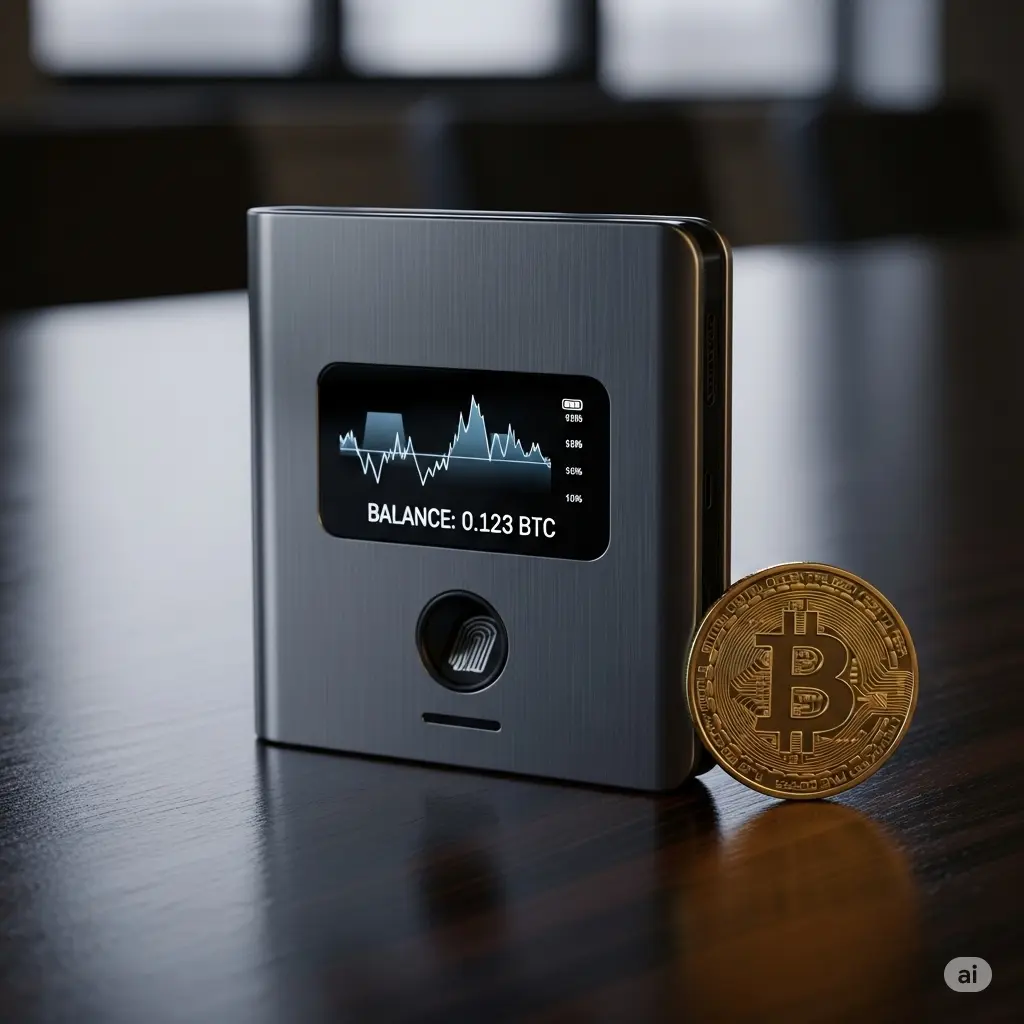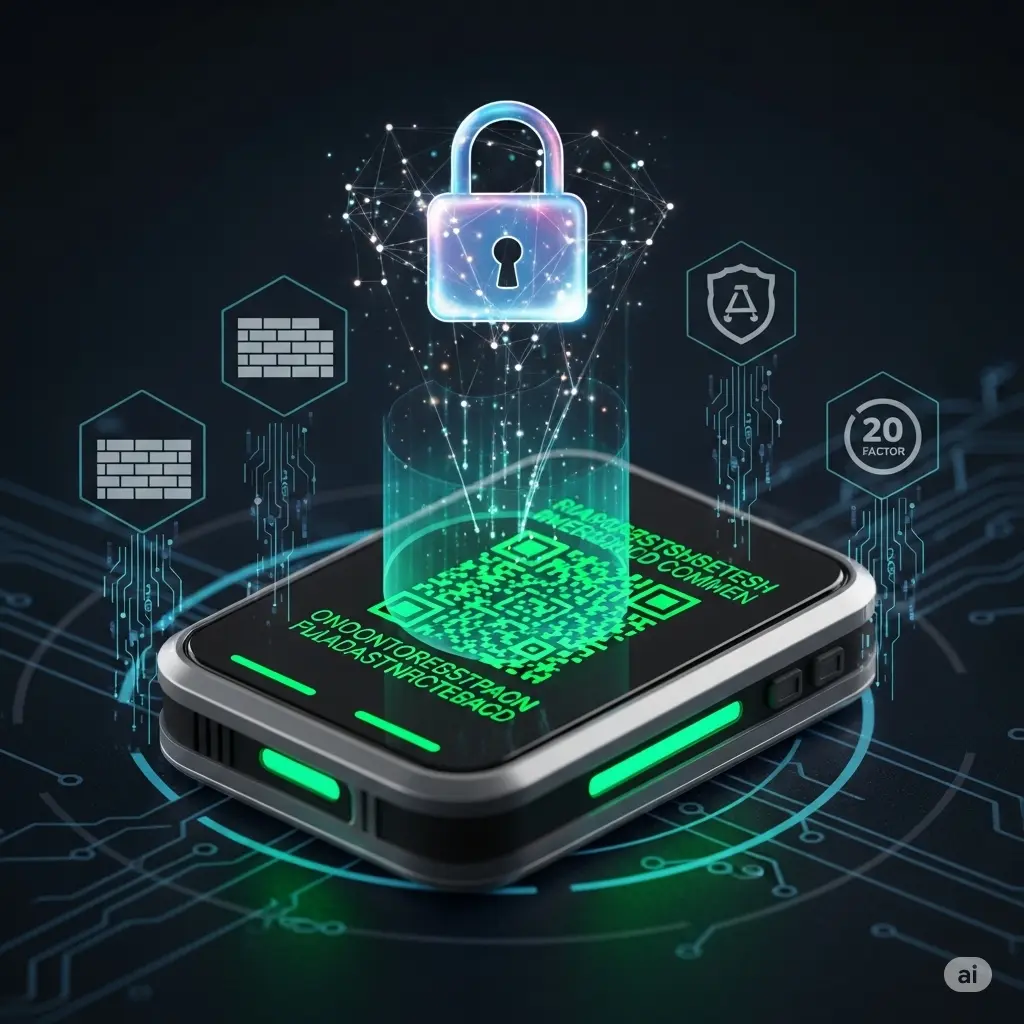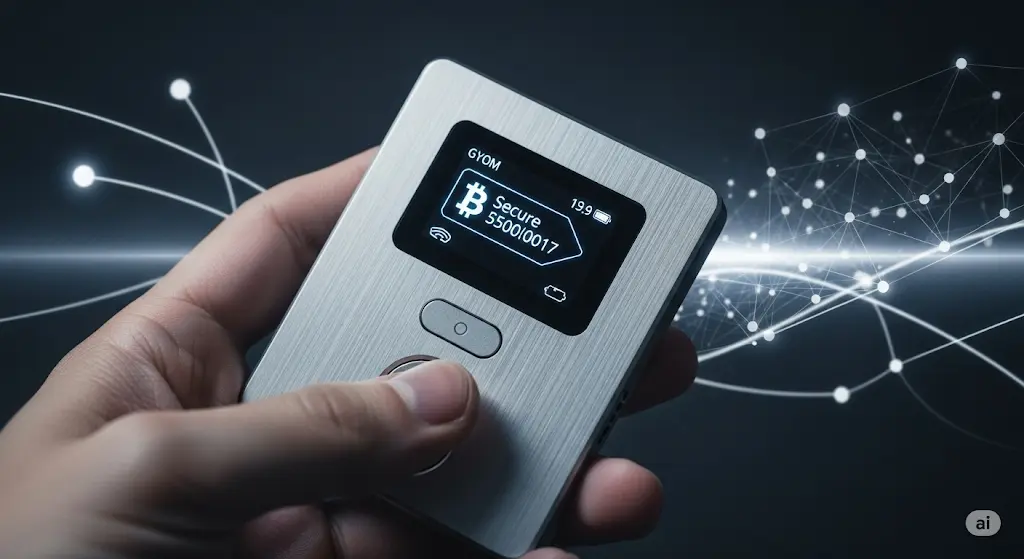The single most crucial tool you need is a secure crypto wallet. Whether you’re just starting out or already trading actively, protecting your digital assets is essential. In this comprehensive guide, we’ll explain everything you need to know about secure crypto wallets, including types, best practices, and how to choose the best crypto wallet in 2025. This guide is designed for crypto beginners and pros alike, with practical advice and clear explanations.
What is a Secure Crypto Wallet?
A secure crypto wallet is a tool or application that stores your private keys safely, allowing you to send, receive, and manage cryptocurrencies. Unlike traditional wallets that hold physical cash, crypto wallets store access credentials for your coins on the blockchain.
A secure crypto wallet protects your assets from hacking, theft, and accidental loss. Without one, your crypto holdings are at risk of being compromised. Therefore, picking the right wallet with robust security features is your first step to confident investing or trading.

Why You Need a Secure Crypto Wallet Today
With the explosive growth of crypto markets reported by Global Crypto Sports and other leading news platforms, cyber threats have also increased. Hacking incidents, phishing scams, and fraud cases are on the rise, making crypto wallet security more important than ever.
Many users lose millions each year because they do not secure their wallets properly. A secure crypto wallet ensures your funds are protected from:
- Online attacks (if you use a hot wallet)
- Physical damage or loss (for hardware wallets)
- Social engineering and phishing
- Software vulnerabilities
In short, having a secure crypto wallet gives you peace of mind and control over your investments.
Types of Crypto Wallets: Cold Wallet vs Hot Wallet
Understanding wallet types is key to finding the best crypto wallet 2025 for your needs. Wallets fall into two main categories:
Hot Wallets
- Definition: Connected to the internet, these wallets allow easy access to your funds.
- Examples: Mobile wallets, desktop wallets, web wallets.
- Pros: Convenient, quick transactions, good for daily use.
- Cons: Vulnerable to hacking and phishing.
Cold Wallets
- Definition: Offline wallets that keep your private keys disconnected from the internet.
- Examples: Hardware wallets, paper wallets.
- Pros: Maximum security, immune to online attacks.
- Cons: Less convenient, requires physical access.
For long-term storage, a cold wallet or hardware wallet is highly recommended. For frequent trading or spending, a hot wallet works well.
Exploring the Different Wallet Options
Hardware Wallets: The Gold Standard of Security
A hardware wallet is a physical device that stores your private keys offline. These wallets often resemble USB drives and are known for unparalleled security.
- Examples: Ledger Nano X, Trezor Model T.
- Security: Keeps private keys away from online threats.
- Backup: Comes with a seed phrase—a critical list of words to recover your wallet.
- Best for: Long-term investors, large holdings.
Mobile Wallets: Crypto on the Go
A mobile wallet is an app on your smartphone, combining convenience with moderate security.
- Examples: Trust Wallet, MetaMask mobile.
- Pros: Easy to use, supports multiple coins.
- Cons: Phone malware risks, loss of device could be critical without backup.
- Security Tips: Always enable PIN, biometric locks, and keep your seed phrase safe.
Desktop Wallets: Balance of Convenience and Security
Desktop wallets are applications installed on your computer.
- Examples: Exodus, Electrum.
- Pros: More secure than mobile, supports advanced features.
- Cons: Vulnerable if your computer is compromised.
Decentralized Wallets: Full Control, No Middlemen
A decentralized wallet allows you to retain complete control without relying on third parties.
- Benefits: Enhanced privacy, censorship resistance.
- Examples: MetaMask, Trust Wallet.
- Security: User is responsible for their own keys and wallet backup.
Understanding the Importance of the Seed Phrase
Your seed phrase is the master key to your crypto wallet. It is usually a 12- or 24-word list generated when you set up your wallet.
- Purpose: Enables wallet recovery if you lose access to your device.
- Security Tips:
- Never share your seed phrase with anyone.
- Write it down on paper, not digital devices.
- Store copies in secure, separate locations.
- Warning: If lost or stolen, your funds can be irretrievably lost or stolen.

Best Practices for Crypto Wallet Security
No matter which wallet you choose, follow these essential security practices to keep your crypto safe:
- Use Strong Passwords – Combine letters, numbers, and symbols.
- Enable Two-Factor Authentication (2FA) – Adds an extra layer of login security.
- Keep Software Updated – Wallet apps and firmware patches often fix vulnerabilities.
- Regularly back up Wallets – Keep updated wallet backup copies offline.
- Avoid Public Wi-Fi – Use secure networks or VPN when accessing wallets.
- Beware of Phishing Attacks – Never click suspicious links or share sensitive info.
- Use Cold Wallets for Large Amounts – Keep your main holdings offline.
- Test Recovery Process – Practice restoring your wallet with your seed phrase.
How to Choose the Best Crypto Wallet 2025
With innovations emerging, it’s essential to pick the best crypto wallet for 2025 that matches your priorities. Consider the following criteria:
| Criteria | What to Look For |
|---|---|
| Security | Hardware wallets, encryption, 2FA |
| User Experience | Easy interface, smooth transactions |
| Supported Cryptos | Wide variety if you trade multiple coins |
| Backup & Recovery | Clear seed phrase instructions |
| Customer Support | Responsive and helpful |
| Compatibility | Mobile, desktop, or both |
| Decentralization | Non-custodial control vs centralized service |
By weighing these factors, you can confidently pick a wallet that protects your assets and fits your lifestyle.
Wallet Backup: Your Lifeline in Crypto
Having a wallet backup is non-negotiable. Without it, you risk permanent loss of access to your digital funds.
- Physical Backups: Write your seed phrase on metal or paper and store it in secure places.
- Multiple Locations: Keep backups in geographically distinct spots.
- Password Managers: Use only trusted, encrypted password tools for wallet info.
- Avoid Digital Notes: Never store your seed phrase on cloud drives or emails.
Regularly updating your backup ensures that you can recover funds in case of device failure, theft, or accidental deletion.
Popular Wallet Brands Trusted by Crypto Enthusiasts
When looking for reliability, consider wallets endorsed by the crypto community and featured by Global Crypto Sports:
- Ledger Nano X: Top-rated hardware wallet with Bluetooth and app support.
- Trezor Model T: User-friendly with advanced security features.
- Trust Wallet: Leading mobile wallet with multi-coin support.
- MetaMask: A Popular decentralized wallet integrated with many dApps.
Each has unique strengths depending on whether you prioritize portability, security, or ease of use.
Frequently Asked Questions (FAQs)
What is the difference between a hot wallet and a cold wallet?
Hot wallets are connected to the internet, offering easy access but higher risk. Cold wallets store keys offline, providing better security but less convenience.
Can I lose my crypto if I forget my seed phrase?
Yes. Without your seed phrase, recovering your wallet is impossible, so it’s crucial to store it safely.
Is a hardware wallet safer than a mobile wallet?
Generally, yes. Hardware wallets keep keys offline, reducing hacking risks, making them the safest option for large holdings.
How often should I back up my wallet?
Every time you receive or move funds, create a new wallet backup to avoid losing recent transactions.
Are decentralized wallets more secure?
They offer control without intermediaries, but you must manage your security, making it riskier for beginners.
Common Myths About Crypto Wallets Debunked
Myth 1: Exchanges Provide Enough Security
Exchanges are convenient but are often targets of hacks. Holding your secure crypto wallet gives you full control and better protection.
Myth 2: Seed Phrases Are Just Backup, Not Important
Your seed phrase is your ultimate key. Anyone with access can steal your funds.
Myth 3: Mobile Wallets Are Unsafe
While more vulnerable than hardware wallets, mobile wallets can be secure if you follow best security practices.
Myth 4: All Wallets Are the Same
Wallets vary widely in security, ease, and supported coins. Choose carefully based on your needs.
Final Thoughts: Secure Your Crypto Future Today
With the crypto market evolving rapidly, securing your digital assets should be your top priority. Investing in a secure crypto wallet not only protects your funds but also empowers you to trade confidently.
Whether you pick a cold wallet, a hardware wallet, or a trusted mobile wallet, always prioritize crypto wallet security. Use strong passwords, safeguard your seed phrase, and back up your wallet diligently.
Stay updated with Global Crypto Sports for the latest trends and news on crypto security. Your journey to ultimate protection starts with the right wallet.



